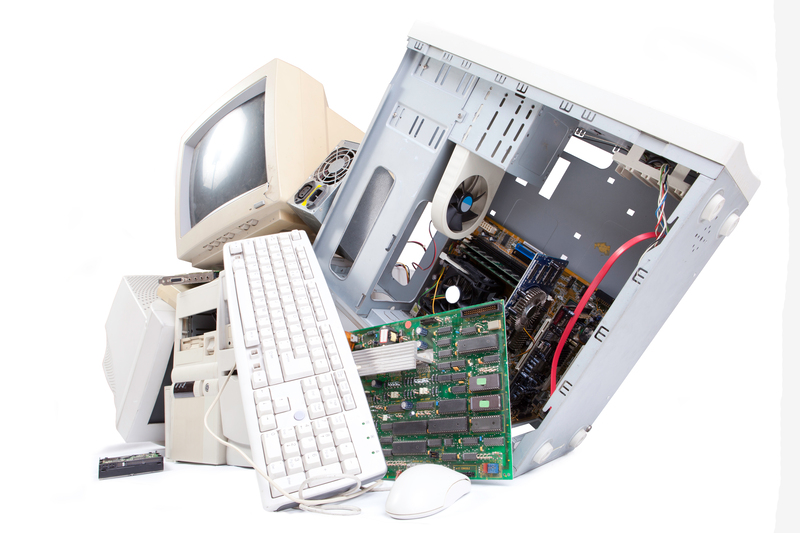Properly Disposing of Air Conditioners and WEEE in Summer
Posted on 14/05/2024
With summer in full swing, many of us rely on air conditioners to keep us cool in the scorching heat. But as temperatures rise, so does our electricity bill - which prompts some people to ditch their old AC units and upgrade to newer, more energy-efficient ones. However, disposing of an air conditioner is not as simple as tossing it in the garbage. In fact, improper disposal can lead to serious environmental harm. That's where proper disposal and recycling of air conditioners and Waste Electrical and Electronic Equipment (WEEE) come into play. In this article, we'll discuss everything you need to know about properly disposing of air conditioners and WEEE in summer.
The Importance of Proper Disposal
When it comes to air conditioners and WEEE, proper disposal is crucial for both the environment and human health. These appliances contain hazardous materials such as refrigerants, oils, and other chemicals that can be harmful if they end up in landfills or water bodies. These substances can contaminate water supplies, soil, and air, leading to various health issues for humans and wildlife. Improperly disposed WEEE can also release toxic gases into the atmosphere and contribute to climate change.

How to Dispose of Air Conditioners
The first step in disposing of an old air conditioner is determining if it still works or if it needs repairs. If it's still functioning well, consider donating it to someone in need or selling it instead of throwing it away. This will not only prevent waste but also benefit someone else.
If your AC unit is beyond repair or you decide to upgrade, you must follow these steps for proper disposal:
1. Check with local waste management: Every municipality has different guidelines for disposing of air conditioners. Check with your local waste management department to find out the proper procedures for your area.
2. Remove refrigerant: Air conditioners contain refrigerants that can harm the environment if not properly handled. Before disposing of your unit, make sure to have a professional technician remove the refrigerant safely and legally.
3. Recycle: Instead of throwing your old air conditioner in the trash, take it to a recycling center that specializes in handling WEEE. These facilities are equipped to handle hazardous materials and ensure they are disposed of or recycled safely.
4. Contact retailers: Some retailers offer recycling services for old appliances when you purchase a new one from them. It's worth checking with your local retailer to see if they have a similar program in place.
WEEE Disposal Options
Apart from air conditioners, other household electronics also fall under WEEE and require proper disposal. Here are some common options for disposing of WEEE:
1. Return to manufacturer: Many manufacturers have take-back programs where you can return your old electronics to be properly disposed of or recycled.
2. Drop-off at a recycling center: Most cities have designated drop-off locations for WEEE. You can also check with your local waste management department for information on electronic waste collection events.
3. Donate or sell: If your electronic device is still functional, consider donating it to someone in need or selling it instead of throwing it away.
The Pros and Cons
Pros:
- Proper disposal and recycling of air conditioners and WEEE help protect the environment and human health.
- Recycling these items reduces the need for extracting raw materials, saving energy and reducing pollution.
- It prevents hazardous materials from ending up in landfills, which can contaminate soil and water sources.
- Proper disposal of WEEE helps recover valuable materials like copper, gold, silver, and rare earth metals.
Cons:
- Disposing of air conditioners and WEEE can be time-consuming and costly.
- Not all municipalities have designated drop-off locations or recycling programs for these items.
- Improper disposal of WEEE can lead to serious environmental and health consequences.

Tips and Takeaways
- Before disposing of an old air conditioner, have a professional technician remove the refrigerant safely.
- Research your local waste management guidelines for proper disposal of air conditioners and WEEE.
- Consider upgrading to energy-efficient appliances to reduce electricity consumption and save money in the long run.
- Always opt for recycling options instead of throwing electronic devices in the trash.
- Be aware of manufacturers' take-back programs and other drop-off locations for proper disposal of WEEE.
In Conclusion
Properly disposing of air conditioners and WEEE is crucial for our environment and human health. It's our responsibility to ensure these items are disposed of or recycled correctly to prevent harm to the planet. By following the guidelines mentioned above, we can do our part in reducing electronic waste and protecting our planet for future generations. Let's make this summer not just about staying cool, but also about being environmentally responsible.


 020 3744 5548
020 3744 5548












